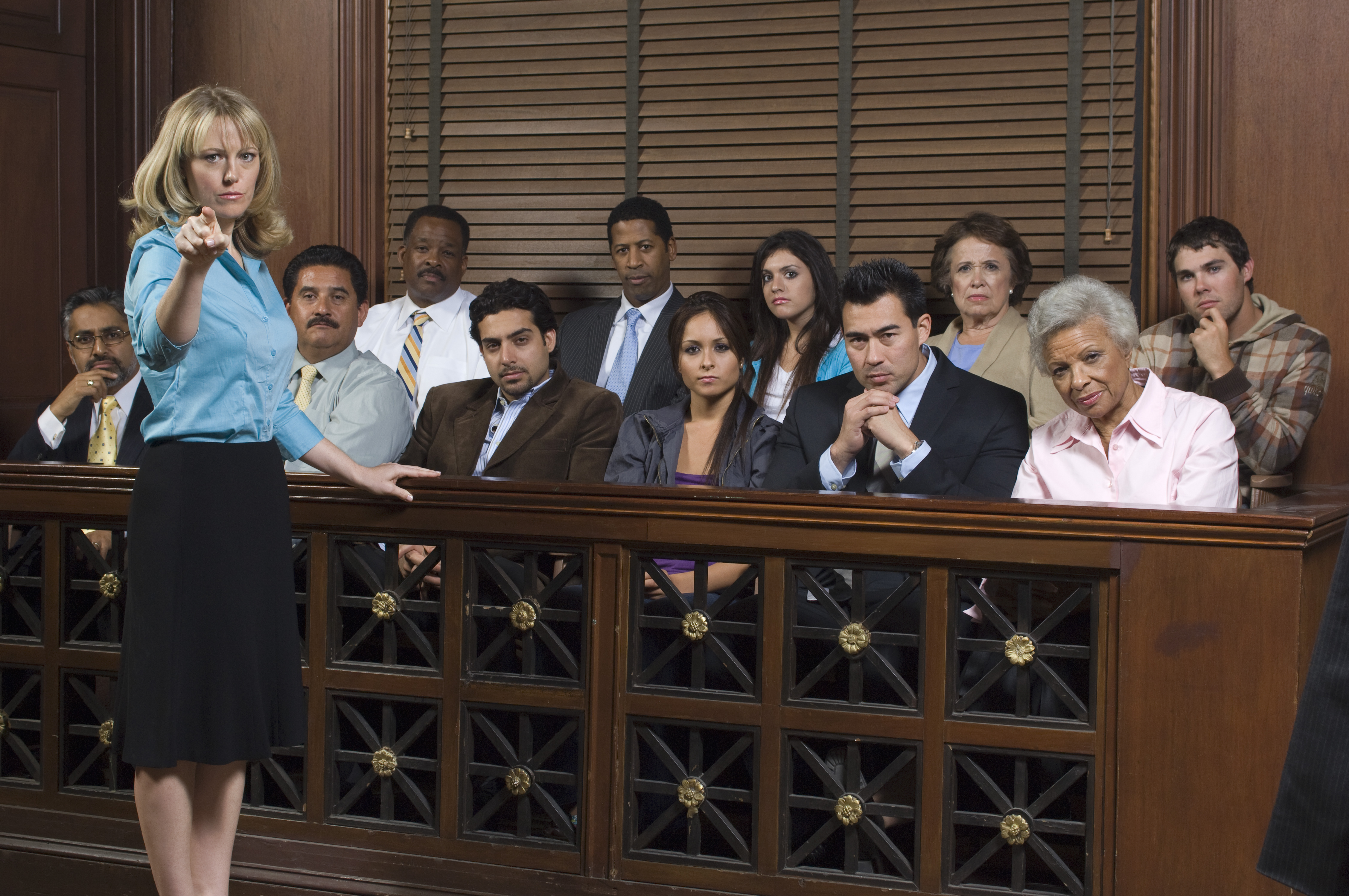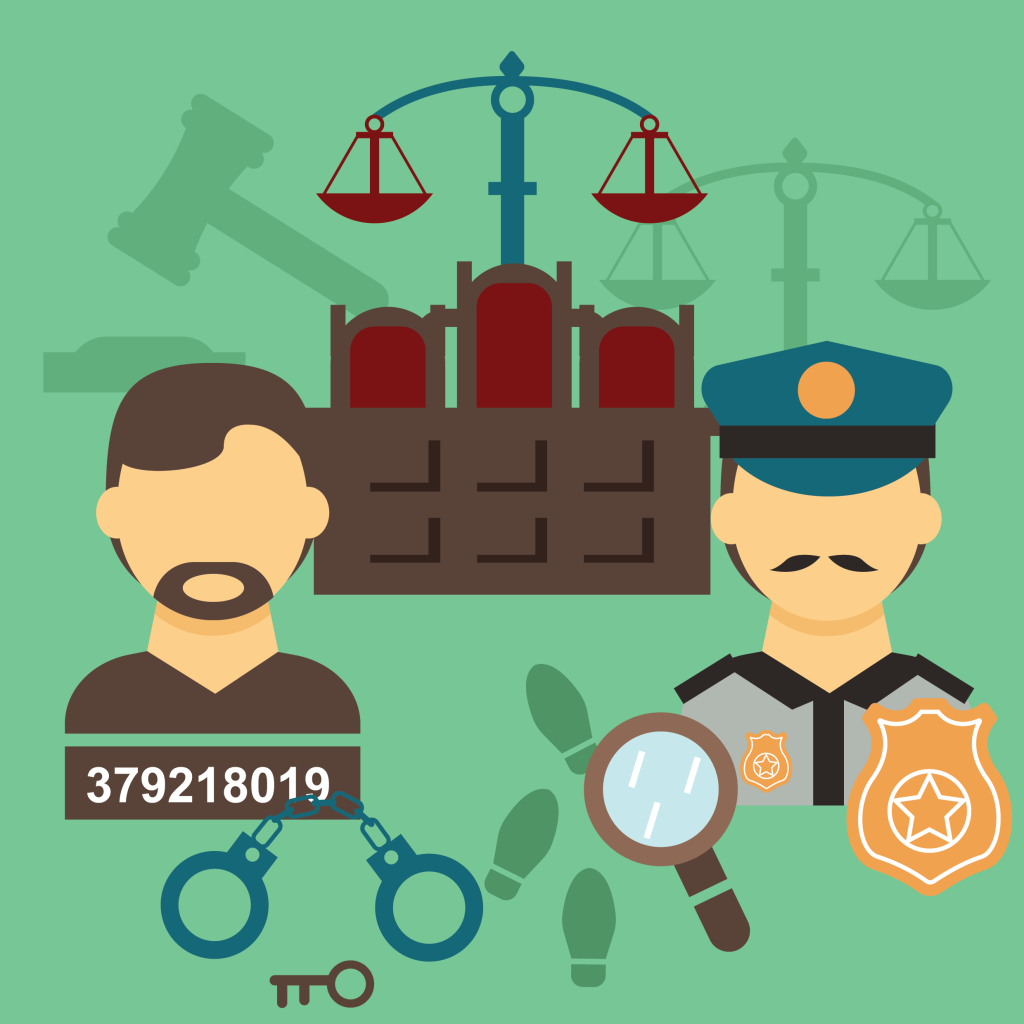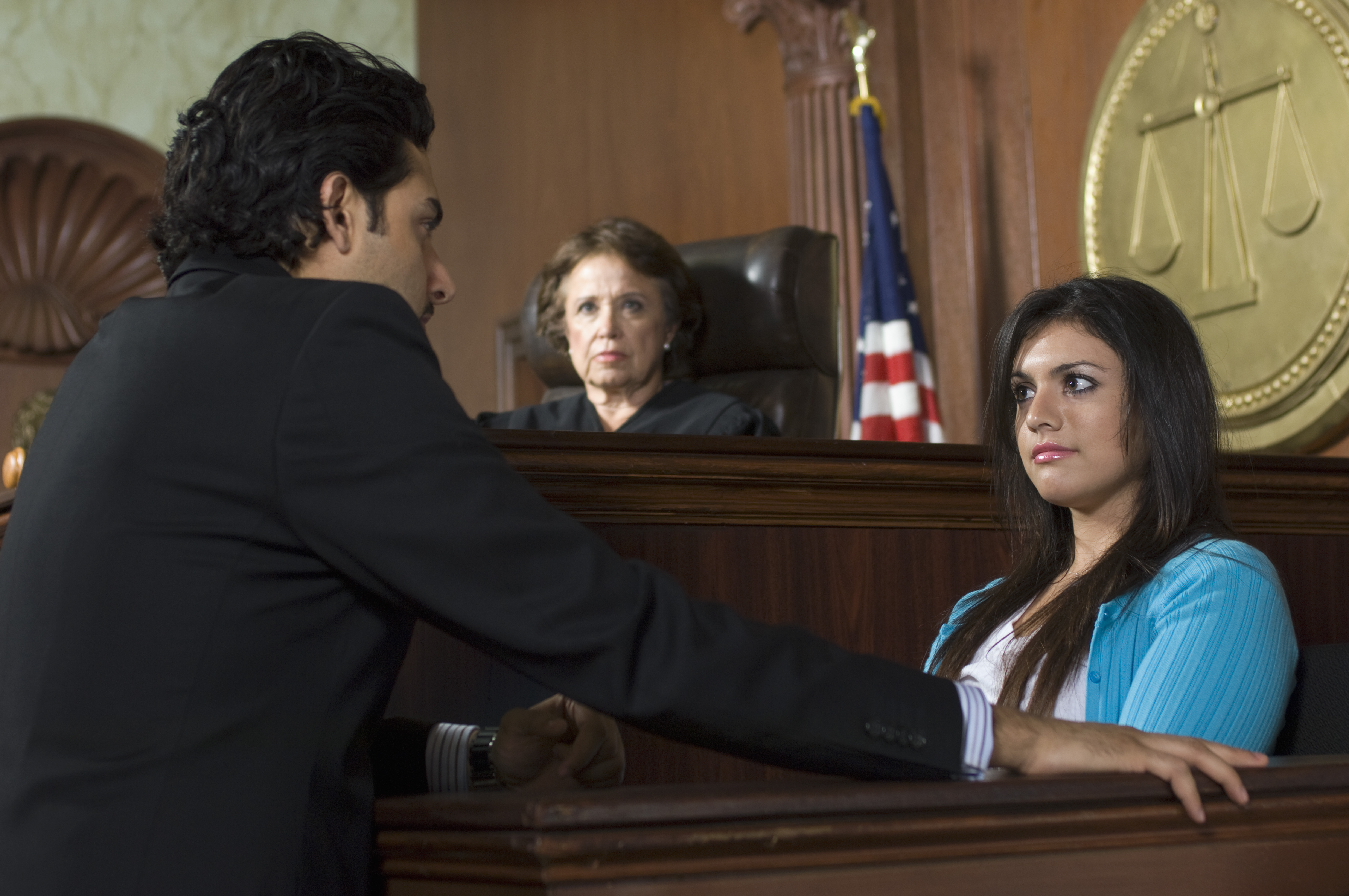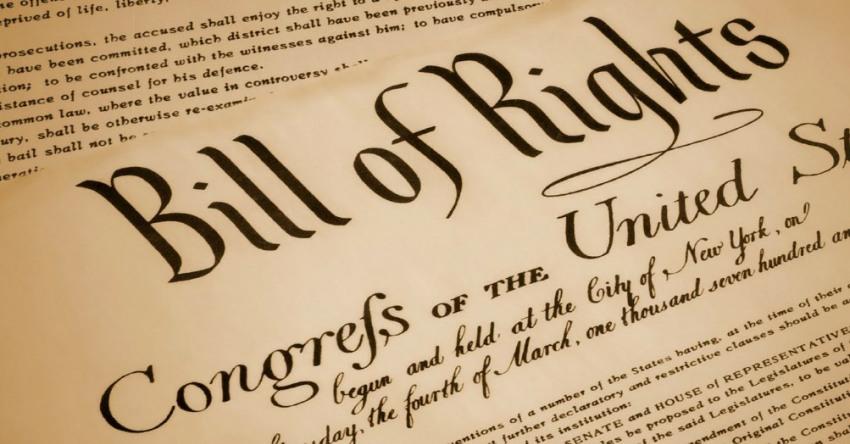Sixth Amendment Facts For Kids
The Sixth Amendment to the United States Constitution was adopted in 1791. It is part of the Bill of Rights, the first ten amendments.
Amendments 4-8 focus on the rights of people who are suspected of committing a crime or causing damage to others. The Sixth Amendment outlines requirements for a fair trial.
It says that citizens have the right to a speedy and public trial by an impartial jury. Additional rights include having a lawyer, bringing their own witnesses to trial, and more.
What does the Sixth Amendment say?
“In all criminal prosecutions, the accused shall enjoy the right to a speedy and public trial, by an impartial jury of the state and district wherein the crime shall have been committed, which district shall have been previously ascertained by law, and to be informed of the nature and cause of the accusation; to be confronted with the witnesses against him; to have compulsory process for obtaining witnesses in his favor, and to have the assistance of counsel for his defense.”
Speedy and Public
According to the Sixth Amendment, the first requirement of a fair trial is that it be “speedy and public.”
“Public” is easy enough to interpret. Trials and criminal proceedings should be open to the public. This guards against secretive, unfair, and illegal treatment of people accused of crimes.
Today, criminal proceedings may be closed to the public only in “overriding” circumstances. These may include national security, public safety, or a victim’s serious privacy interests.
“Speedy” is not so clear. The idea is that someone who is accused of a crime can’t be held in jail for an unnecessarily long time while waiting for trial. But how fast is a “speedy” trial? The amendment doesn’t say.
The Supreme Court has ruled that a case can be dismissed if the trial is not held in a timely manner. However, it’s still unclear what “timely” means. Delays of several years are sometimes allowed.
Impartial Jury
Next, the Sixth Amendment says that someone who is accused of a crime has the right to a trial by jury. This right only applies when the person is accused of a crime that can lead to six months or more in jail.
A jury is a group of people (usually 12 people) who hears the evidence from both sides and determines whether the accused is guilty or innocent.
The jury must be “impartial.” This means that the jury is willing to listen to all the evidence before deciding. They haven’t already decided that the person is innocent or that the person is guilty.
The jury can’t have any prejudice for or against the defendant. They simply want to make the right decision based on the evidence.
To make sure that the jury is impartial, the lawyers from each side interview potential jurors and get to choose who joins the jury.
In addition, the trial must take place in the state or district where the alleged crime was committed.
Notice of Accusation
Under British rule, people were sometimes imprisoned without being told what crime they had committed or what they had done wrong. This still happens in some countries today.
The Sixth Amendment prevents this by saying defendants “shall be informed of the nature and cause of the accusation.” People have the right to know what crime they are being charged with and to defend against the accusation.
Witnesses
During a trial, the people who witnessed the crime or have other firsthand information about the crime (called witnesses) testify in court.
The defendant has the right “to be confronted with the witnesses against him.” This means the person accused of the crime (or that person’s lawyer) has a chance to question witnesses and possibly prove that the witness is lying or incorrect.
Unless the defendant is disruptive in court, he or she has the right to be present throughout their trial.
In addition, the person who is accused of a crime can bring their own witnesses to testify in their favor.
Assistance of Counsel
Lastly, the Sixth Amendment says that people have the right to counsel in their defense. This means that someone who is accused of a crime has the right to a lawyer.
If someone doesn’t want a lawyer, they also have the right to testify in their own defense. Since the average citizen has limited legal knowledge, this is usually not recommended.
What if someone wants a lawyer but can’t afford one? In that case, the government provides and pays for a lawyer. These lawyers are called public defenders.
Public defenders are required to provide “effective” counsel. They must give good advice to their clients and provide a reasonably good defense if the case goes to trial.
Other Interesting Facts About the Sixth Amendment
People who are accused of a crime that could lead to six months or more in jail always have the right to trial by jury.
However, they often plea bargain instead of going to trial. A plea bargain means pleading guilty in exchange for a lower charge or a lesser sentence.
At first, the Sixth Amendment applied only to federal cases. Later, the Supreme Court ruled that it applies to state courts too.
The Confrontation Clause means that witnesses must testify in court under oath, and in the presence of the defendant. The only exception is for small children who may be traumatized by the experience.
Statements made out of court by a witness can’t be used against the defendant.
The jury’s verdict must be unanimous. That means all 12 jurors must agree. The Supreme Court does not enforce this rule on state courts, so states like Louisiana and Oregon allow 11-1 or 10-2 votes.
Trials are sometimes moved to a different location to ensure that the jury is impartial.










